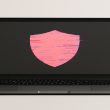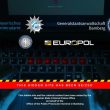Don’t think that if you have managed to keep your identity hidden on the internet using murky profile IDs and fake email addresses on social media then you can evade the prying eyes of the web

According to the new research from Columbia University’s Data Science Center in collaboration with Google, it is relatively easy to accurately identify an otherwise anonymous used social media and related apps.
During their research, the team took a large data set from different social media apps and removed any traces of user identities. In their study, which could be read in detail here (pdf), it is described that the idea that these traces of users’ identities can be linked and merged is not just fascinating but unsettling as well. Researchers explain:
“Almost every interaction with technology creates digital traces, from the cell tower used to route mobile calls to the vendor recording a credit card transaction; from the photographs we take off the ‘status updates’ we post online.”
Geolocation data was utilized by the team for this study, which refers to the data received when you post an update on Facebook or tag your photo on Instagram. It is evident that previously conducted studies on similar issue revealed that identifying anonymous persons is possible via, for instance, credit cards. But this new report claims that it is possible for location data taken from two social media apps. This can help in figuring out correctly who the user actually is.
To conduct the analysis, the team developed an algorithm for the sake of comparing geotagged Tweets with Instagram tagging or Checked-in information from Facebook. The objective was to check if this data could identify users or not. The same testing was done on credit card transactions information to cell tower pings. As per the findings of the study, credit card purchases comparison with cell tower pings was a much more precise and reliable method of identifying anonymous users.
Geo-locations of Wikipedia articles in different languages #www2016 pic.twitter.com/QKO4t9dGCQ
— julia kiseleva (@julia_kiseleva) April 15, 2016
The process, however, isn’t as simple as it sounds. Various factors were taken into account by the researchers such as data set imbalance, which means a higher number of Tweets but a low number of Instagram posts or the nature of data such as Instagram pictures are usually old ones while Check-in information is usually impromptu.
Your Location on Windows 10 Phone is Traceable, Here’s How to Disable itApple and Android Apps Share Your Emails and Location Data: Report
To examine exactly how revealing this social media app data is, Riederer and Columbia undergrads Danny Echikson and Stephanie Huang created “You Are Where You Go,” a tool where people can audit their social media data trail.

Awesome & scary that people can be identified by linking datasets based on location/time @dodger487 #www2016 pic.twitter.com/LroKBq9fmq
— Sudha Ram (@sudharam) April 14, 2016
The author of this study Augustin Chaintreau told BuzzFeed that:
“Many people choose not to identify themselves online. If I now tell you that your location data makes you recognizable across all of your accounts, how does that change your behavior? This is a question we now have to answer.”
He also proved how location data can help in identifying anonymous users. The process is as follows:
“n LinkedIn you are likely to use your real name … but maybe you are also using Tinder or some or other application which you would not want to be linked back to your real name. Using the data in what you have posted, those accounts could be linked, even if in one of them — say Tinder— you believed you were operating in ghost mode.”
According to the co-author of the study Chris Riederer, people need to become aware of the importance of location data because they tend to share it on varied apps without even realizing the repercussions.
“Companies no longer have to be very sophisticated to access this data and use it for their own purposes,” added Riederer.







